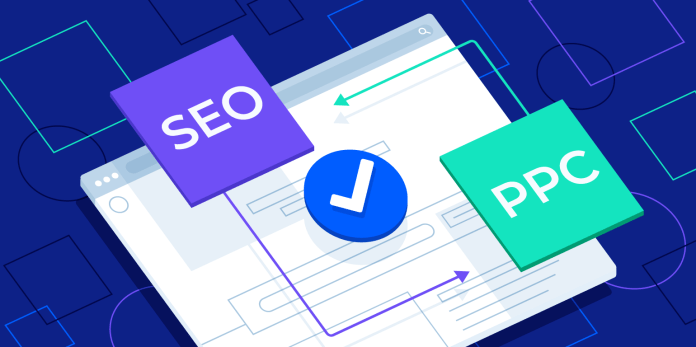In the world of digital marketing, SEO (search engine optimization) plays a pivotal role in enhancing the visibility and positioning of web pages within organic search results. By implementing a comprehensive SEO strategy, businesses aim to attract a larger audience and improve the quality of website traffic. Organic search results, which are unpaid listings on a search engine results page (SERP), are carefully selected by search engines to align with users’ queries.
However, PPC (pay-per-click) advertisements often dominate these SERPs. Unlike organic search results, PPC ads are paid placements that appear based on advertiser bids rather than the search engine’s organic ranking algorithms. This distinction is crucial to understand when combining SEO and PPC data for more powerful outcomes.
While PPC can deliver immediate visibility and targeted traffic, SEO provides sustainable long-term growth. By synergizing the insights from both SEO and PPC data, businesses can unlock a comprehensive understanding of their audience’s behavior, preferences, and search intent. This integration allows marketers to optimize their digital marketing efforts and drive remarkable results.
By analyzing SEO data, such as keyword rankings, organic traffic patterns, and user engagement metrics, marketers gain valuable insights into which keywords and content resonate most with their audience. On the other hand, PPC data provides granular details on ad performance, click-through rates, conversion rates, and demographic targeting. This information allows marketers to identify high-performing keywords, refine ad copy, and improve campaign targeting.
By leveraging the combined power of SEO and PPC data, marketers can make informed decisions to optimize their website content, landing pages, and advertising strategies. For instance, they can identify valuable keywords that generate high organic traffic and supplement those efforts with targeted PPC campaigns to further enhance visibility and conversions.
It’s important to note that while PPC allows businesses to pay for ad placements, SEO rankings are earned through strategic optimization efforts and valuable content creation. Investing in a robust SEO strategy remains essential for long-term success in organic search results.
Exploring the Benefits: Paid Search Results vs. Organic Search Results
When it comes to sponsored search results versus organic search results, the debate of which is better often arises. Let’s delve into the advantages and disadvantages of each type of impact. Paid search offers the advantage of delivering up-to-date and time-sensitive information, while organic search holds the benefit of securing higher rankings on Google.
Advantages of Paid Search Results:
- Paid search ensures access to up-to-date and fresh content, allowing businesses to communicate timely information to their audience.
- Search engine platforms like Google provide clear and transparent cost information in advance, empowering buyers to make informed purchasing decisions.
- PPC campaigns enable precise targeting, reaching only those who have expressed interest in a particular product or service. This targeted approach increases conversions and click-through rates, making PPC a unique and effective marketing tool.
- By strategically placing ads in relevant and useful spaces, PPC enhances brand exposure and serves as a powerful means of communication with the target audience.
- PPC ads can be seamlessly integrated into local search results, appearing as rich media commercials, thereby maximising visibility and engagement.
- With PPC, advertisers have greater control over ad wording, allowing them to craft compelling text-based or video advertisements based on their specific goals and requirements.
Organic search results have the following advantages:
- Organic search results often receive higher rankings on Google compared to sponsored search ads, leading to increased visibility and credibility for businesses.
- Organic search results remain accurate and accessible even as the advertiser’s business evolves or new products and services are added to their portfolio.
- Unlike paid search, organic search results have the potential to appear on the first page more quickly, ensuring the advertiser’s brand is prominently displayed to searchers.
- Organic search results tend to be more comprehensive and thorough, providing users with a wider range of relevant information.
- Implementing organic search strategies typically incurs lower costs per click (CPC) compared to paid search advertising in a PPC campaign, resulting in potential cost savings.
- SEO practices, which aim to optimize organic search results, help businesses attract targeted traffic based on relevant and accurate information provided to search engines.
- Tracking and analyzing the performance of organic search results is relatively easier and more cost-effective, as businesses are not required to pay for ads based on specific criteria.
SEO and PPC strategies are distinct marketing approaches that share the common goal of reaching potential clients online.
Exploring the Diverse Aspects of SEO and PPC Strategies
cost versus optimization. SEO is a long-term technique that requires time investment to generate high-quality content, yielding results over months without direct monetary costs. Conversely, PPC is a costly method aimed at achieving immediate and measurable outcomes. However, it poses the risk of spending on clicks from unqualified users who bypass the intended landing page, resulting in lower conversion rates.
The disparity between these two approaches is striking. LeadPages, a user-friendly WordPress plugin, has been instrumental in bridging the gap by exporting leads from websites and transforming them into hyperlinks for landing pages. This technique offers greater visibility in search results, second only to direct visitors, surpassing any other marketing method.
What is Point Cloud to CAD Conversion?
Besides the cost and optimization aspects, both SEO and PPC have their own advantages and disadvantages. A significant benefit of PPC campaigns is their capacity for lead generation, whereas SEO primarily focuses on long-term results. However, PPC also entails drawbacks, such as the high cost of advertisements across various formats, including text ads like Google AdWords, video ads like YouTube, and search traffic via AdWords Google.
SEO, an acronym for “search engine optimization,” involves improving your website to enhance its visibility when people search for products or services related to your business on search engines like Google, Bing, and others. The higher your pages appear in search results, the greater the likelihood of attracting attention and engaging new and existing customers.
